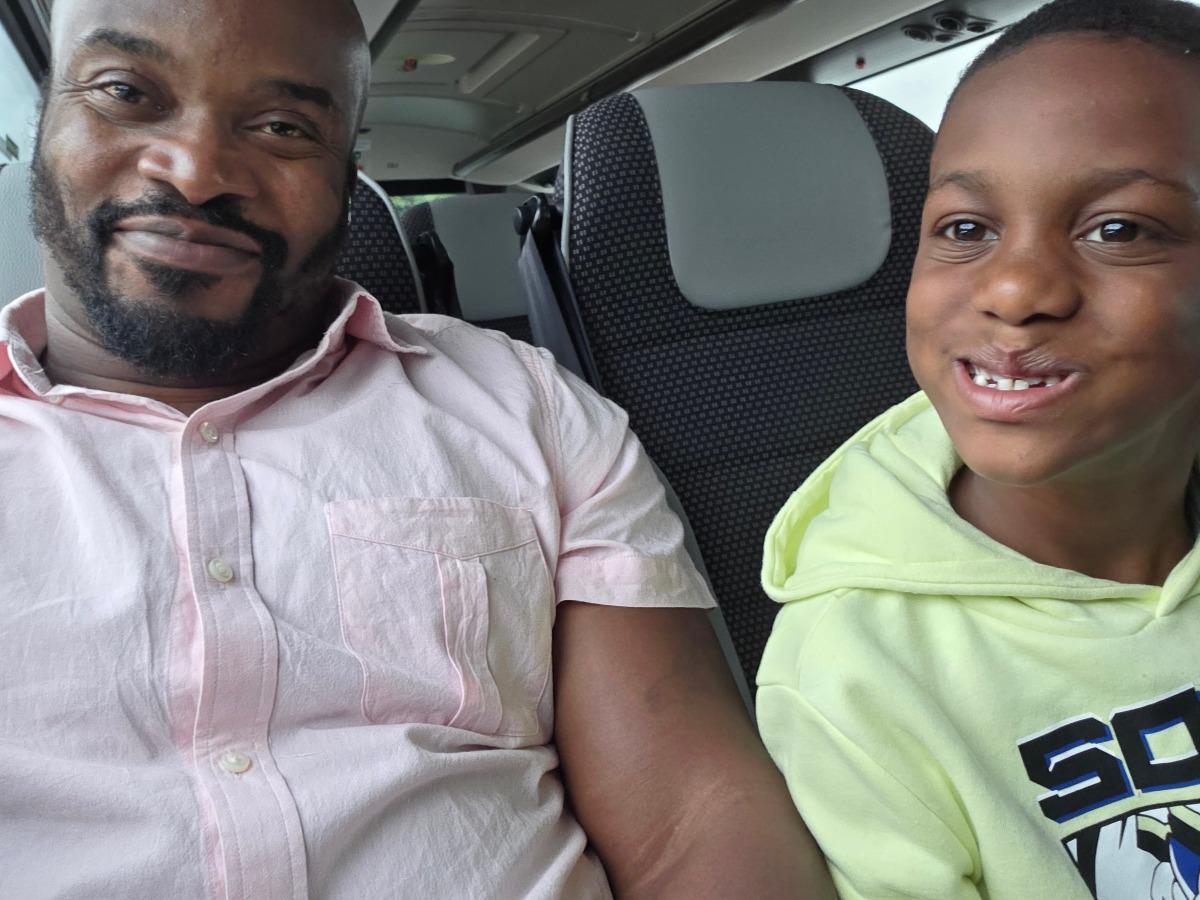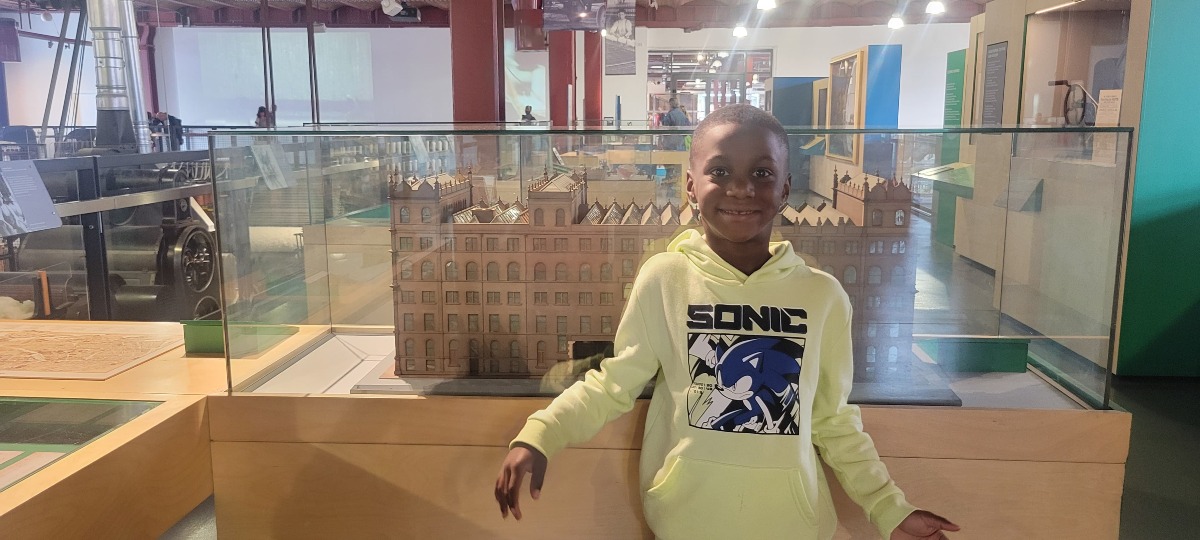Understanding Language vs Speech Disorder
I like the words of the great Dave Chappelle, my favorite comedian, “It’s never that serious until it happens to you”, and it is.
 Maybe not directly, but secondary at best.
Maybe not directly, but secondary at best.
Before my last son, Ezra, was born, I had a very basic knowledge of language and speech disorders.
But, dealing with speech and language disorders head-on, I was confronted with something very new to me and scary to say the least.
As a parent who had no choice but to deal with speech and language disorders, having clear, reliable information was not just helpful, it was essential to get the best outcome for our child.
Language disorders often have the ability to interfere with processing and understanding communication.
Speech disorders typically affect the physical ability to produce sounds in the oral form of communication. Both have their own challenges.
One way I learned to support my child was through tech-based tools like those discussed in 10 Speech Therapy Apps for 2024. With experience and a better understanding is the first step toward results.
Long story short, after years of trial and error, he is on the mend, and when I say that, it is still daily consistency with all the things concerning it.
What is a Language Disorder?
Understanding the small details of language disorders makes it easier to tell them apart from speech disorders. These conditions often disrupt a child’s ability to understand and express language, using words and symbols to share meaning.
I’m sure you’re wondering: what exactly are the different types, and what might cause them? Let’s jump right in.
Types of Language Disorders
Language disorders can present themselves in a few different forms.
- Expressive Language Disorder: This mostly affects expressive language, focusing on how one uses words. It’s like telling a story but not having the words to do so; that’s expressive language disorder. Expressive language issues create difficulty expressing themselves, making it hard to formulate sentences and share thoughts fully.
- Receptive Language Disorder: The difficulty lies in receptive language, or understanding what is said. It’s like hearing someone speak to you in a foreign language, which makes it hard to follow directions and comprehend questions.
- Mixed Language Disorder: This is a combination of the above, affecting both expressive language and receptive language. Have you ever tried communication at a really noisy party where both speaking and hearing are equally as difficult? Well, that’s what it’s like.
Causes of Language Disorders
Quite commonly, the questions are asked as to how and why this happened. Well..?
Common factors are:
- Genetic Factors: Genetics play a big role; making a list of your family history for clues is a good start.
- Neurological Issues: Some children develop language disorders due to neuro conditions such as brain injuries or developmental delays.
- Environmental Influences: When children are exposed to very little communication or spoken language in their home.
This is just a short list, but seeing a specialist is always the best way to move forward.

Consider checking out some helpful tools like 7 Must-Have Smart Home Solutions
What is a Speech Disorder?
The speech disorder definition includes conditions usually seen at a young age when children are learning to speak.
Unlike language disorders, where a child needs to process and understand spoken words, speech disorders involve a physical aspect of word formation that prevents proper pronunciation.
Types of Speech Disorders
Here are some common types of speech sound disorders:
- Articulation Disorders: Difficulty in making specific speech sounds correctly. Think of it like trying to speak while your mouth refuses to cooperate; certain letter sounds can be distorted or omitted. This might manifest as lisping or creating substitutions like “wabbit” for “rabbit.”
- Fluency Disorders: Stuttering or other fluency issues can occur or develop, as well as repetitions, prolongations, and interruptions in the natural way of speaking. This speech impairment sometimes causes a child frustration and self-confidence issues.
- Voice Disorders: This affects issues with pitch, volume, or quality of sound produced. Imagine speaking through a strained megaphone where your voice doesn’t sound like it should; that’s what a voice disorder might entail.
What Causes Speech Disorders
The causes of speech disorders are just as varied as the disorders themselves, each opening different routes for treatment:
- Developmental Issues: In some instances, speech disorders arise naturally as part of a child’s development. It’s like a developmental hurdle that one might have to work through.
- Neurological Disorders: Conditions like cerebral palsy or traumatic brain injuries that impact speech production. These disorders interrupt the neural pathways necessary for voice.
- Physical Conditions: A cleft palate or frenulum will have an effect on how spoken words are formed.
When to Seek Professional Help
After all the research and books you might have read about speech and speech disorders, you will still need a specialist to guide you through the difficult part.
A speech-language pathologist, an expert in speech-language pathology, is who you’ll call for the heavy lifting.
Treatment for language disorders and related language challenges should be tailored to each child, often focusing on building vocabulary, strengthening grammar, and improving listening and reading comprehension.
Speech disorders require special strategies to improve sound production, articulation, and fluency. The best results are when there is teamwork, a combination of professional intervention and support from home that improves the speed and chances of the child’s success with normal speech.
I’ve learned that being an active part of my child’s therapy, using tools and exercises recommended by the SLP, and creating a supportive and fun environment for Ezra to learn.
In my household, we make learning fun. Children on the whole, enjoy enjoying themselves while learning so it becomes less taxing.
Support for Parents
Support for parents is a resource that is so undervalued. Just like raising children, this journey is not so different; it’s a journey with lots of learning on the go.
It’s not merely about understanding the big words and sounding smart, you actually know what you speak of. It’s about equipping ourselves with the right tools and knowing when to seek the help our little ones need.
In this section, I want to share some resources and strategies that can offer support along this path.
Speaking of resources, here’s a great one to check out. Fatherhood Uncut.

Resources and Tools
With so many gadgets and apps available, picking the right speech therapy tools can truly move the needle. The best resources keep practice simple, build consistency, and help us champion our children’s progress.
Here’s what you might find helpful:
- Speech Therapy Apps: Technology is changing how kids practice speech. From playful interactive games to clinician-designed apps, these tools offer real support at home and in therapy. A simple app can turn practice into play, which boosts focus and consistency. For apps worth trying, see our 10 Speech Therapy Apps for 2024.
- Parenting Blogs and CommunitiesOften, other parents offer the most practical wisdom. Parenting blogs and online communities share real tips, honest stories, and steady encouragement. It feels like a cozy coffee chat from home, where shared experiences fuel the conversation.
Stop hear me out. I know what you’re thinking. You need a group that’s everything Dads. Look no further! Join our free Facebook group Fatherhood Uncut
Seeking Help
At times, despite our best efforts, we sense the need for professional intervention. But how do we know when it’s time to ring the alarm bells and reach out for professional assistance?
- Key SignsIf you keep seeing ongoing challenges, like missed language or speech milestones or signs of related learning disabilities, take that as your signal to act.
- Consulting Experts: Choosing the right specialist brings real peace of mind. A speech-language pathologist focuses on building children’s speech and language skills, and an SLP can also guide home practice and school support. If you are unsure where to start, ask your pediatrician for referrals; they can connect you with local providers and explain how to request school services through an Individualized Education Program or a 504 plan that fits your child’s needs.
- Online Support Groups: Online support groups and parenting communities help you meet families facing the same speech and language challenges.
Seeking professional help isn’t an admission of defeat in any way shape or form. It’s a proactive measure that reflects support for our children. Remember, you’re not alone in this journey.
For parents, learning about language disorder vs speech disorder can feel like one more hurdle, yet knowing the difference is key to our children’s communication development.
Spot early warning signs and reach out for help to open better options. Knowledge gives you confidence and direction. By learning about speech and language disorders and taking action, we give our kids the best chance to thrive.
For more info on easing day-to-day parenting challenges, read 10 Ways to Make Parenting More Interesting. By learning together, we boost our kids’ communication progress and stay grounded in a caring, supportive community.
Related Posts
The Role of Parental Involvement in Speech Delay
Understanding the Causes of Speech Delay in Toddlers
Join our community and stay updated with the latest insights and resources. Subscribe to our newsletter now!
This is just a short list but seeing a specialist is always the best way moving forward.
Related Posts
The Role of Parental Involvement in Speech Delay
Understanding the Causes of Speech Delay in Toddlers



2 Comments
Comments are closed.